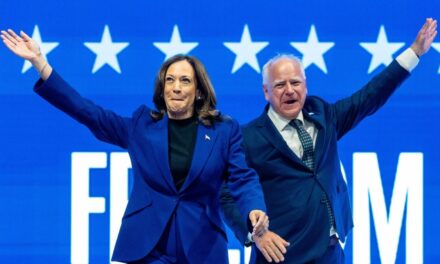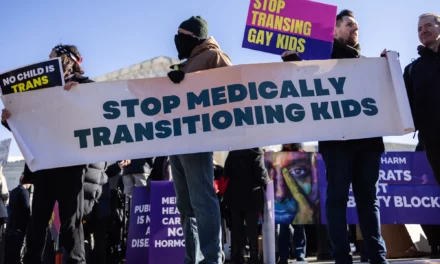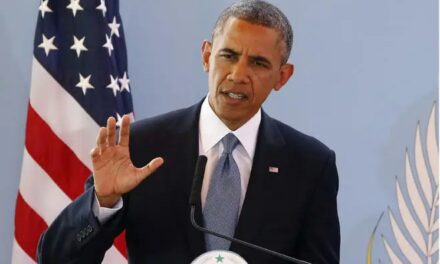We support our Publishers and Content Creators. You can view this story on their website by CLICKING HERE.

The D.C. Circuit Court’s decision to uphold the TikTok ban has reignited a national debate over the platform’s role in American society. On one side are those who argue that TikTok poses a serious threat to national security because of its ties to the Chinese Communist Party (CCP). On the other are advocates who warn that banning TikTok would undermine free speech, set a dangerous precedent for government overreach, and harm millions of American users who rely on the platform for business and creativity.
This debate is far from simple. It’s caught at the intersection of two major issues: national security and the protection of individual rights. Both sides make compelling arguments, which is why any action taken against TikTok must tread carefully to balance security concerns with America’s commitment to freedom.
Critics of TikTok warn that the app, owned by Chinese parent company ByteDance, could grant the CCP access to the private data of millions of Americans. While ByteDance has repeatedly denied sharing user data with the Chinese government, skeptics argue that the company is subject to Chinese data laws, which could compel it to cooperate with Beijing. For these critics, TikTok represents a potential security risk—one that they believe the U.S. cannot afford to ignore.
Beyond data security, there are concerns that TikTok’s algorithm could be manipulated to influence public opinion, potentially spreading propaganda or censoring information critical of China. These fears are amplified by the broader U.S.-China rivalry, where economic, technological, and political competition continues to escalate. This concern is not new—similar debates swirled around Huawei, the Chinese telecom giant accused of exposing U.S. networks to surveillance risks. Huawei’s case never reached a definitive conclusion, but it demonstrated how complex these issues can be.
For those who see TikTok as a danger, the recent court decision is a necessary step to protect Americans from foreign surveillance and influence. They argue that the ban isn’t an attack on free speech, but a proactive measure to safeguard national security.
On the other hand, opponents of the ban argue that targeting TikTok undermines free speech and property rights. Banning it or forcing its sale would impact not only ByteDance but also the creators and users who rely on it every day.
Take Lisa Jacobs, a baker from Kansas, who credits TikTok for saving her bakery during the pandemic. She started posting creative videos of her cupcake designs, which quickly went viral. Within months, her sales doubled, and she says TikTok connected her with an audience she never could’ve reached otherwise. Stories like Lisa’s highlight the platform’s unique role in empowering entrepreneurs and creators.
Some critics of the ban see it as hypocritical, pointing out that U.S.-based platforms like Facebook and Google have faced similar accusations of misusing user data, yet remain unchallenged by lawmakers. The difference, they argue, lies in who owns TikTok—an example, in their view, of fear-driven policymaking aimed more at China than the actual app.
Then there’s the question of free speech. For many, TikTok represents a modern town square where people can share their ideas. They worry that banning the platform would set a dangerous precedent, allowing the government to dictate which platforms Americans are allowed to use. I share that fear.
While the arguments for and against TikTok are polarizing, there’s one point that deserves greater attention: how TikTok itself handles free speech. Even as politicians argue over the app’s security risks and economic impact, many Americans face censorship on the platform, particularly those with political views that don’t align with TikTok’s moderators or policies.
I know this firsthand. I once posted a video on TikTok expressing my support for Donald Trump’s economic policies and how they benefited small business owners in my community. The video contained no hateful or inflammatory content—just a straightforward opinion—but it was removed within hours. A few days later, my account was suspended entirely. I never received a clear explanation, but it was obvious that my content didn’t align with the narrative TikTok’s moderators wanted to promote. I’m not alone. Many Trump supporters and conservatives have faced similar bans and restrictions, leaving them unable to access the platform or connect with its massive audience.
This raises an important question: if TikTok is allowed to remain in the U.S., what will be done to ensure that the voices of Trump supporters, conservatives, and others who don’t fit the mainstream mold are treated fairly? While some might dismiss this as a separate issue, it’s directly tied to the debate about whether TikTok aligns with American values like freedom of speech and open expression.
What Trump Should Demand
If Donald Trump, or any politician for that matter, decides to oppose the TikTok ban, they should demand meaningful changes to how the platform treats its users. It’s not enough to keep TikTok in the U.S. if the company can continue silencing dissenting voices. Trump’s supporters—myself included—have been silenced on TikTok, even as we’re accused of opposing free speech elsewhere. That double standard needs to end.
Trump has already outlined a plan to defend free speech as part of his Agenda 47 policy initiative. He has called censorship by Big Tech one of the gravest threats to American democracy and pledged to stop government collusion with social media companies that suppress lawful speech. Among his proposals, Trump has called for an executive order to ban federal agencies from pressuring platforms to censor content, a right for Americans to sue platforms for unfair bans, and reforms to Section 230 of the Communications Decency Act to ensure transparency in content moderation. These ideas are directly applicable to TikTok.
If Trump is serious about protecting free expression, this is his moment to act. He should demand that TikTok implement content moderation practices that protect all Americans, regardless of their political views. Platforms that engage in political censorship should lose the privileges they enjoy under U.S. law, including immunity from lawsuits. By pushing TikTok to align with these principles, Trump could not only restore the voices of his supporters but also ensure the platform reflects the values of free speech and open dialogue that Americans cherish.
As Trump himself has said, “If we don’t have free speech, we don’t have a free country.” TikTok’s presence in the United States must come with a commitment to these values. Anything less would betray the principles at the heart of this debate.
If the U.S. decides to ban TikTok, it will send a clear message about how seriously the country takes the CCP’s potential influence. But if the ban doesn’t move forward, the government must ensure that TikTok operates in a way that respects the rights of all Americans, regardless of their political beliefs. Anything less would undermine the very freedoms this debate claims to protect.
NEXT: PETERSEN: ‘Morning Joe’ Scarborough’s Mar-a-Lago Pivot

 Conservative
Conservative  Search
Search Trending
Trending Current News
Current News 





